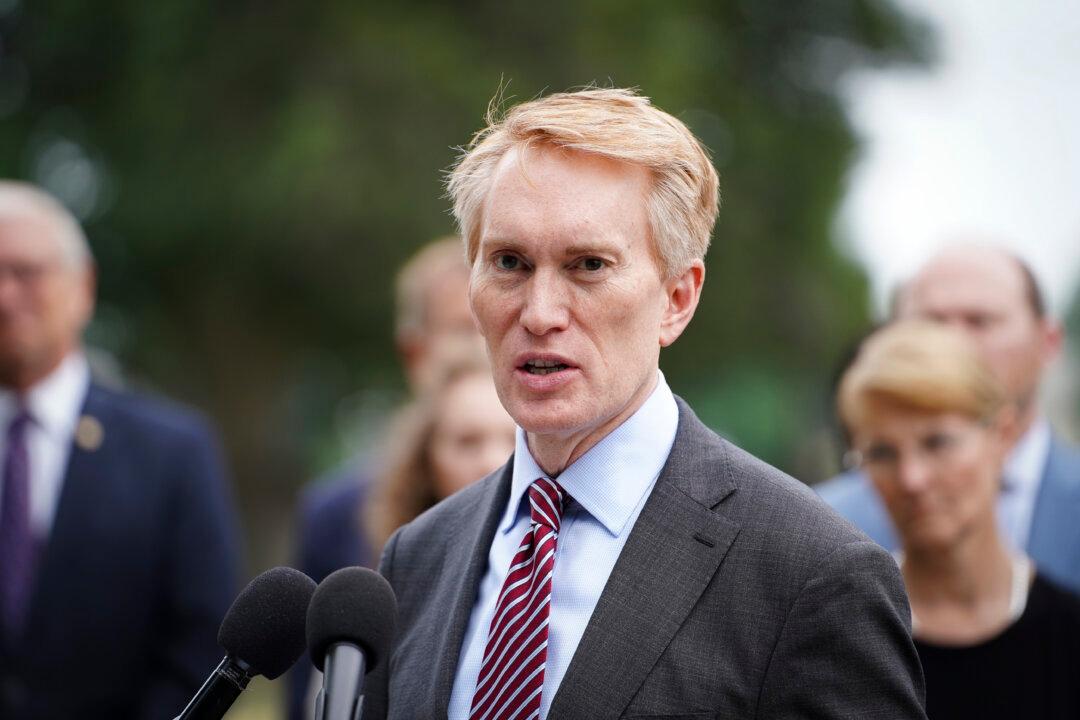Sen. James Lankford (R-Okla.) announced on March 20 that he is running for a leadership position in the Senate GOP conference.
He is aiming for the conference’s vice chair position, which is currently occupied by Sen. Shelley Moore Capito (R-W.Va.).

Sen. James Lankford (R-Okla.) announced on March 20 that he is running for a leadership position in the Senate GOP conference.
He is aiming for the conference’s vice chair position, which is currently occupied by Sen. Shelley Moore Capito (R-W.Va.).